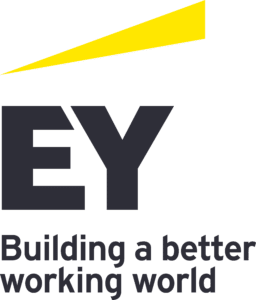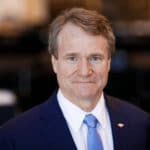Taking Steps, Making Progress
Featured Members

The Council for Inclusive Capitalism launched in December 2020 with just 25 organizations. Since then, we have grown to more than 300 organization leaders sharing their best ideas and concrete actions for operating and investing in inclusive and sustainable ways. Now numbering more than 625 time-based, measurable commitments to action, our repository of best practices is the largest open-source library in the world.
We asked three of our founding members to share the progress they are making on some of their most ambitious commitments. While these are just a few examples of how our members are driving meaningful, measurable impact on the global economy, the Council plans to release its first, Council-wide progress update in 2023 to highlight the collective and individual progress made since our launch in 2020.
 EY is collaborating with Unilever and the UK Foreign, Commonwealth and Development Office (FCDO) through the TRANSFORM program, a £90m unique joint initiative to deliver market-based solutions to the world’s biggest development challenges. Established in 2015, it works to accelerate impact enterprises, blending funding and support by using its capabilities and expertise in marketing, distribution, digital and business resilience to deliver transformative market-based solutions to low-income households in sub-Saharan Africa and South Asia that last.
EY is collaborating with Unilever and the UK Foreign, Commonwealth and Development Office (FCDO) through the TRANSFORM program, a £90m unique joint initiative to deliver market-based solutions to the world’s biggest development challenges. Established in 2015, it works to accelerate impact enterprises, blending funding and support by using its capabilities and expertise in marketing, distribution, digital and business resilience to deliver transformative market-based solutions to low-income households in sub-Saharan Africa and South Asia that last.
As of August 2022, TRANSFORM has:
- Impacted the lives of six million people across 15 countries with 74% of direct beneficiaries categorized as “marginalized” (women, rural, low-income)
- Supported over 75 projects that have either developed innovative business models and/or conducted research
- Built a strong evidence base of over 90 outputs and eight peer-reviewed papers on behavior-change-led interventions to improve the lives of low-income groups, disseminated at more than 30 major conference presentations.
One example of TRANSFORM’s success is Jeeon, an online marketplace for retail pharmacists and chemists in Bangladesh. Jeeon helps to get vital supplies to remote rural pharmacies (and 4 million underserved patients) through its digital platform and aims to reach every pharmacy in the country next year.
 In its effort to digitally enable 50 million small and micro businesses (SMBs) worldwide by the end of 2023, Visa has launched various community-based programs to help more small businesses accept digital payments and gain greater access to the digital economy. As part of this ongoing commitment, Visa has helped digitally enable 30 million SMBs worldwide as of May 2022 by introducing a range of locally designed programs and solutions to enable SMBs to drive efficiency and sales through acceptance of digital payments, building online businesses and incentivizing neighborhood support.
In its effort to digitally enable 50 million small and micro businesses (SMBs) worldwide by the end of 2023, Visa has launched various community-based programs to help more small businesses accept digital payments and gain greater access to the digital economy. As part of this ongoing commitment, Visa has helped digitally enable 30 million SMBs worldwide as of May 2022 by introducing a range of locally designed programs and solutions to enable SMBs to drive efficiency and sales through acceptance of digital payments, building online businesses and incentivizing neighborhood support.
In order to do so, Visa is focusing initially on four strategic areas to promote digital commerce and economic growth, with plans to continue to create products and services as the needs of entrepreneurs change over time. These areas include:
- Empowering digital-first businesses: Visa has built localized online resource centers – now available in more than 20 countries – providing tools, partner offers and information on how to start, run and grow digital-first small businesses. In the U.S., Visa is expanding its partnership with IFundWomen providing grants and digital training to U.S.-based Black women-owned small businesses.
- Encouraging digital payments: Visa is working with a range of partners to increase the number of locations where consumers can tap their contactless card or mobile phone.
- Incentivizing neighborhood support: The Visa Back to Business Project – an online tool that helps consumers identify businesses that may be open in the wake of the pandemic or a natural disaster – is now live in Australia, New Zealand and the U.S., and further expanding globally. In Europe and across Central Europe, Middle East and Africa, Visa has launched new SMB initiatives that champion and enable entrepreneurs while encouraging consumers to support small businesses. Visa is teaming up with eCommerce platforms like Shopify, and restaurant delivery companies, including Deliveroo, to reward consumers for spending their money locally.
- Developing positioning and policy: Visa announced the formation of the Visa Economic Empowerment Institute, a new institute comprised of Visa experts and partners that will help address underlying problems and provide insights for SMB growth and closing racial/gender gaps. Key projects in the next six months will address topics including post-crisis recovery and resilience, urban mobility, closing equality opportunity gaps and insights into the gig economy.
Bank of America believes the private sector is a key lever in solving the world’s greatest challenges, including the transition to a more sustainable future. That’s why, in 2021 the bank set a goal to mobilize and deploy $1.5 trillion in sustainable finance by 2030: $1 trillion to accelerate the environmental transition and $500 billion dedicated to inclusive social development.
In 2021 alone, Bank of America mobilized and deployed approximately $250 billion in sustainable finance activity of which $155 billion was directed towards the climate and environmental transition. The company continues to expand and innovate its sustainable finance activities and offerings, including increased asset-based financing, advisory and capital raising activities for renewable energy and energy efficiency projects; sustainable transportation and sustainable fuels; and carbon capture to assist clients in their transition to a low carbon economy.
![]() Bank of America believes the private sector plays a leading role in addressing the world’s greatest challenges, including the transition to a more sustainable future. That’s why, in 2021 the bank set a goal to mobilize and deploy $1.5 trillion in sustainable finance by 2030: $1 trillion to accelerate the environmental transition and $500 billion dedicated to inclusive social development.
Bank of America believes the private sector plays a leading role in addressing the world’s greatest challenges, including the transition to a more sustainable future. That’s why, in 2021 the bank set a goal to mobilize and deploy $1.5 trillion in sustainable finance by 2030: $1 trillion to accelerate the environmental transition and $500 billion dedicated to inclusive social development.
In 2021 alone, Bank of America, serving clients across all industry groups, mobilized and deployed approximately $250 billion in sustainable finance activity of which $155 billion was directed towards the climate and environmental transition. The company continues to work with its clients to expand and innovate sustainable finance activities and offerings for those clients, including increased asset based financing, advisory and capital raising activities for renewable energy and energy efficiency projects; sustainable transportation and sustainable fuels; and carbon capture to assist clients in their transition to a low carbon economy.
Bank of America is a top renewable energy tax equity investor, with a portfolio of approximately $12 billion as of year-end 2021. In addition, the company is a top underwriter of ESG-themed bonds having underwrote $47.1 billion on behalf of more than 182 clients in 2021. Bank of America is also a top corporate issuer having raised close to $12 billion across nine green social and sustainability bonds since 2013, including the issuance of its second $2 billion Equality Progress Sustainability Bond in 2021.
Additional highlights include:
- Tripled the Bank of America Community Homeownership Commitment® to $15 billion through 2025 with a goal of helping 60,000 low-and moderate-income (LMI) individuals and families to purchase a home.
- Provided a record $6.6 billion in loans, tax credit equity investments and other real estate development solutions through Community Development Banking to finance affordable housing and economic development.
- Originated over $400 million in loans and investments, raising Bank of America’s total portfolio to over $2 billion extended to Community Development Financial Institutions (CDFIs).
- Committed more than $450 million to equity funds, Minority Depository Institutions and CDFIs that provide capital to diverse entrepreneurs and small business owners as part of their $1.25 billion commitment to advance racial equality and economic opportunity.

